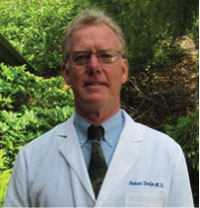
By Robert F. Dodge, MD
April 15 is tax day. Each year, with the onset of spring and the renewal it brings, our nation funds our priorities. As stated by Rev. Jim Wallis of Sojourners, “Budgets are moral documents,” and as such, ultimately they provide funding for the hopes, desires and preparations for the future.
This year communities across our nation are struggling to recover from the catastrophic natural disasters over the past year. Yet, paradoxically, as we cope with the rebuilding and financial burden of these natural disasters, our nation marches blindly forward spending precious resources funding the greatest potential manmade disaster, namely nuclear war. The effects of nuclear war would dwarf any natural disaster.
The tax expenditures for all nuclear programs is calculated each year by Physicians for Social Responsibility Los Angeles as part of their Nuclear Weapons Community Costs Project. For fiscal year 2019 which is paid April 15th the cost is $61.45 Billion.
The impact of these nuclear expenditures on communities across this nation hardest hit by the natural disasters of 2018 are as follows:
| Locale | Disaster | Nuclear Expenditure |
| Santa Barbara Co., Ca.
|
Thomas Fire / Montecito mudslides | >$88.7 Million |
| Elliot City, Md.
|
Flash flooding | >$20.5 Million |
| North Carolina | Hurricanes Florence / Michael | >$1.759 Billion |
| South Carolina | Hurricanes Florence / Michael | >$816 Million
|
| Florida | Hurricane Michael | >$3.692 Billion |
| Georgia | Hurricane Michael | >$1.775 Billion |
| Butte Co, Ca. | Camp Fire | >$36 Million |
| L.A. Co, Ca. | Woolsey Fire | >$1.885 Billion |
| Ventura Co., Ca | Woolsey Fire | >$184 Million |
The Camp Fire destroyed almost 14,000 homes. The Woolsey fire at the end of the year paradoxically started on the site of one of the worst nuclear accidents in U.S. history at the Santa Susanna Field Lab in Simi Valley. The question must be asked, do these expenditures make these communities any safer?
These nuclear expenditures fuel a false concept of nuclear deterrence and a new arms race that is expected to cost $1.7 Trillion adjusted for inflation over the next 30 years. They rob our communities, our children and future generations of opportunities that can and must be realized in order to protect their world.
We need to spend our precious dollars investing in stemming climate change and its effects, not in responding to the international crises that result from the same. The current humanitarian crisis and war in Syria along with the impending crisis and humanitarian disaster in Central and South America, including Honduras, stem in part from climate change.
The status quo is not sustainable. Left unchecked, the probability of nuclear war either by plan or accident increases. The United Nations declared this month that the prospect of nuclear war is higher now than it has been in generations. This is a situation that does not have to be. Man built nuclear weapons and man can destroy them. The only way to prevent nuclear war is to abolish these weapons as called for in the U.N. Treaty on the Prohibition of Nuclear Weapons.
In the U.S. there is a growing movement from communities, cities, states, NGOs and religious bodies across our nation called “Back from the Brink” that demands action by our government. This calls on our federal officials to endorse:
- Renouncing the option of using nuclear weapons first
- Ending the sole, unchecked authority of any U.S. president to launch a nuclear attack
- Taking U.S. nuclear weapons off hair-trigger alert
- Cancelling the plan to replace its entire nuclear arsenal with enhanced weapons
- Actively pursuing a verifiable agreement among nuclear-armed states to eliminate their nuclear arsenals
Each of us can endorse this Call and demand our elected Representatives to do likewise. This past week U.S. Representatives McGovern and Blumenauer introduced H. Res 302 that supports the Back from the Brink campaign.
As our nation and world face these great challenges, there are simultaneously great opportunities. They require great vision and leadership. Each of us has a role to play. These are not political or partisan issues. They are issues of survival. As our elected officials contemplate future budgets, who among them will have the courage, wisdom and understanding to make the connections between climate and nuclear war and become the bipartisan leaders of today’s abolition movement?
